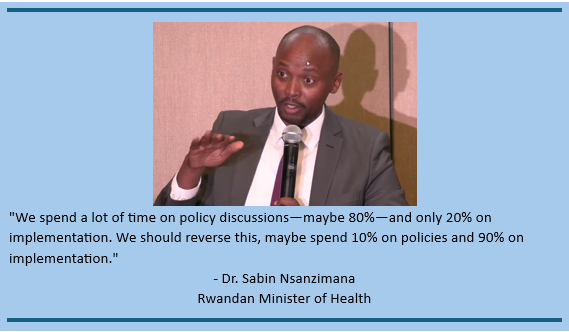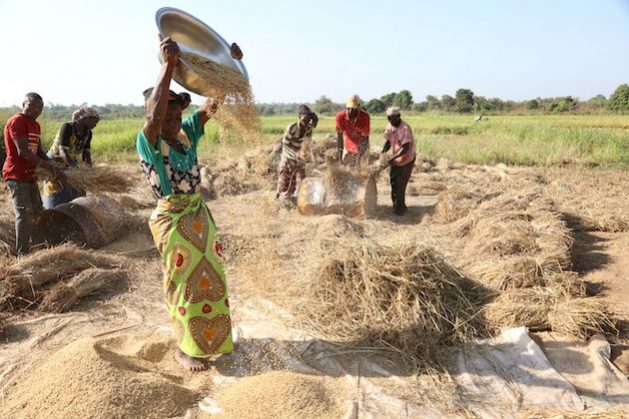Introduction: The Overlooked Opportunity
UK Africa Trade represents a critical yet underappreciated area for both British and African growth. Despite Africa hosting 13 of the 20 fastest-growing economies globally, the UK’s trade footprint has shrunk drastically over the past three decades. Tanzania, one of Africa’s economic powerhouses, exemplifies this missed potential. This article explores the key factors behind this shift and the untapped prospects awaiting renewed UK-Africa engagement.
Economic Shift: Africa’s Rapid Growth vs. UK’s Declining Share
The African continent’s economic dynamism is undeniable, with nations like Tanzania outpacing many traditional global economies. However, UK Africa Trade has fallen from 16% of Africa’s trade in 1990 to a mere 2% today. This steep decline has been accompanied by a significant retreat in UK foreign direct investment, especially in countries outside South Africa, where UK investments are heavily concentrated. Understanding this shift is crucial for identifying pathways to regain a strategic foothold.
Investment Landscape: Challenges and Opportunities in Tanzania
Tanzania’s burgeoning economy is marked by ambitious infrastructure projects, including the Julius Nyerere Hydropower Plant and the Standard Gauge Railway, which aim to enhance connectivity and energy supply. The government’s focus on streamlining regulations and fostering private investment is creating an attractive environment. However, British investors have yet to capitalize fully on these openings, representing a significant gap between potential and current engagement.
Innovative African Enterprises Driving Growth
Beyond traditional sectors, Tanzania’s vibrant private sector offers exciting prospects. Companies like Ubongo, BimaAFYA, and Simusolar illustrate the continent’s capability for innovative, scalable solutions in education, healthcare, and agriculture. These success stories, coupled with growing tech entrepreneurship events such as Sahara Sparks, highlight an ecosystem ripe for UK investment and partnership that goes beyond resource extraction.
Building Strategic Partnerships: Toward a UK-Africa Trade Revival
Efforts to rejuvenate UK Africa Trade include newly signed trade deals and the UK-Tanzania Mutual Prosperity agreement, fostering cooperation in manufacturing and green growth. A proposed UK-Africa strategy aligned with the African Union’s Agenda 2063 aims to deepen collaboration through summits, policy dialogue, and inclusive growth programs. Such frameworks offer the blueprint for a balanced and mutually beneficial trade relationship in the decades ahead.
Leveraging Cultural and Historical Ties for Future Success
The longstanding Commonwealth connection provides a unique foundation for deepening UK Africa Trade. Shared history, language, and institutional familiarity can facilitate smoother partnerships. Tanzania’s youthful workforce and vocational training initiatives promise a skilled labor pool ready to support industrial growth. By harnessing these strengths, the UK can reposition itself as a key partner in Africa’s evolving economic landscape.
Conclusion: Seizing the Moment for Mutual Prosperity
UK Africa Trade is poised at a critical juncture. With Africa’s economies growing rapidly and Tanzania leading with robust infrastructure and innovation, the UK stands to gain immensely by refocusing its trade and investment strategies. Building on current successes and fostering strategic partnerships can unlock vast potential, benefiting both British investors and African communities. The time to act is now, for shared prosperity and sustainable growth.
Infrastructure and Industrial Development: The Engine of Tanzania’s Growth
Infrastructure is a key determinant of any economy’s capacity to grow and develop, and Tanzania has seen significant investments in energy, transportation, and communications, positioning it well to attract foreign investment. Major projects like the Julius Nyerere Hydropower Plant and the new Kigongo-Busisi Bridge over Lake Victoria exemplify the government’s efforts to provide clean, sustainable energy and connect vital regions internally and externally. Additionally, the expansion of the Standard Gauge Railway network across the country facilitates efficient movement of goods and products, enhancing regional economic integration.
These investments create a more competitive environment for factories and companies operating in the Tanzanian market, boosting export opportunities to neighboring and global markets. The establishment of special economic zones (SEZs), such as the Sino-Tan Industrial Park in Kibaha, plays a significant role in attracting foreign firms, with 71 memoranda of understanding already signed, aiming to bring in $3 billion in capital. These steps support the ambitious industrial strategy led by the government to achieve inclusive and sustainable development.
UK Africa Trade: Investing in Human Capital and Youth: Tanzania’s Bright Future
Tanzania’s youthful population represents a golden opportunity to transform this demographic into an effective workforce contributing to economic growth. The government places great emphasis on youth training and vocational education programs aimed at equipping them with the skills necessary for a changing job market. These initiatives include professional training and educational programs focused on technology and industrial skills.
Additionally, there are targeted initiatives to create employment opportunities for youth by supporting entrepreneurship and enabling access to financing and markets. This approach enables the Tanzanian economy to harness youthful energy more effectively, reducing unemployment and improving living standards. Investing in people strengthens the country’s competitiveness, making it an attractive destination for foreign investors seeking skilled and available labor.
UK Africa Trade: Private Sector Success Stories and Innovation: Inspiring Examples from Tanzania
Tanzania is witnessing remarkable growth in entrepreneurship and innovation, with startups offering creative solutions tailored to local and regional market needs. For instance, Dar es Salaam-based company Ubongo delivers educational content digitally, reaching over 32 million households across Africa and securing support from major global institutions like the Gates Foundation and USAID. This initiative demonstrates Tanzanian companies’ ability to innovate and scale across the continent.
Other companies like BimaAFYA provide affordable mobile health insurance to the informal sector, enhancing healthcare inclusivity. Simusolar offers solar-powered agricultural tools targeting rural farmers and fishers, boosting productivity and income. These examples illustrate a diverse and evolving Tanzanian economy driven by innovation and modern technology.
UK Africa Trade: Foreign Investment and Challenges Faced
Despite promising opportunities, foreign investors in Tanzania face several challenges that may hinder capital inflow. These include bureaucratic hurdles, policy fluctuations, and regulatory inconsistencies, which can make investors cautious about expanding or entering the Tanzanian market.
However, progress has been made to improve the investment climate through simplifying procedures and offering incentives, particularly in special economic zones. The government aims to foster a more stable and attractive environment through ongoing dialogue with the private sector to identify challenges and develop effective solutions.
Continuation of these efforts is crucial for attracting more investments, especially from the UK, which has historical and cultural-economic ties with Tanzania.
The Strategic Importance of UK-Africa Cooperation
The UK-Africa relationship should evolve into a long-term strategic partnership encompassing trade, investment, and collaboration in technology and green energy. African countries’ call for a joint UK-Africa strategy aligned with the African Union’s Agenda 2063 embodies this vision, proposing a biennial UK-Africa summit to strengthen political and economic cooperation.
Developing clear institutional partnerships with defined goals will enhance sustainable growth and create mutual development opportunities. The UK’s technical and financial support can accelerate industrial and agricultural development projects while gaining streamlined access to a rapidly growing market with abundant human and natural resources.
UK Africa Trade:The Role of Digital Technology in Driving Economic Growth
Digital technology plays an increasingly critical role in transforming African economies, including Tanzania. Technologies such as artificial intelligence, big data, and cloud computing provide powerful tools to improve productivity and efficiency across agriculture, industry, and financial services.
Local and international companies contribute to this digital transformation by launching advanced platforms and innovative services. Supporting innovation in this field can fast-track economic development, generate new jobs, and reduce developmental gaps. Collaboration between the UK and Africa in technology can open new horizons for investment and knowledge exchange.
UK Africa Trade: Enhancing Sustainability and Inclusive Economic Development
With growing global awareness about sustainable development, economic strategies are increasingly incorporating environmental and social dimensions. Tanzania’s government and private sector seek to integrate sustainability standards into development plans, such as adopting clean energy and responsible natural resource management.
Involving marginalized groups, especially women and youth, in economic opportunities is a core element for balanced and inclusive growth. These efforts boost Tanzania’s economy’s resilience to environmental and social challenges while maintaining high growth rates.
UK Africa Trade_The Bright Future: Upcoming Opportunities and Challenges
Like many African economies, Tanzania faces challenges such as the need for further reforms, infrastructure enhancement, and improving the business environment. However, positive indicators such as rapid economic growth, infrastructure investments, and innovation position the country on a promising path.
The UK can play a pivotal role in this future by strengthening economic and trade relations, supporting development initiatives, and investing in human and technological capacities. The success of this partnership depends on mutual cooperation and a clear vision that considers both parties’ interests.
Conclusion: Building a Sustainable Partnership for Shared Prosperity
Tanzania and Africa at large are uniquely positioned to make significant leaps in development and global trade based on current economic and political foundations. Redirecting the UK’s strategy toward a long-term partnership based on mutual respect and common interests can unlock new avenues for growth and prosperity.
By supporting industrial development, investing in youth, fostering innovation, and committing to sustainability, both parties can forge a strong relationship yielding sustainable economic and social benefits. The future holds abundant opportunities, requiring political will and a clear strategy to fully realize them.
For further insights on African trade dynamics, visit our recent article on Africa’s Emerging Trade Corridors.
Source: African Business




